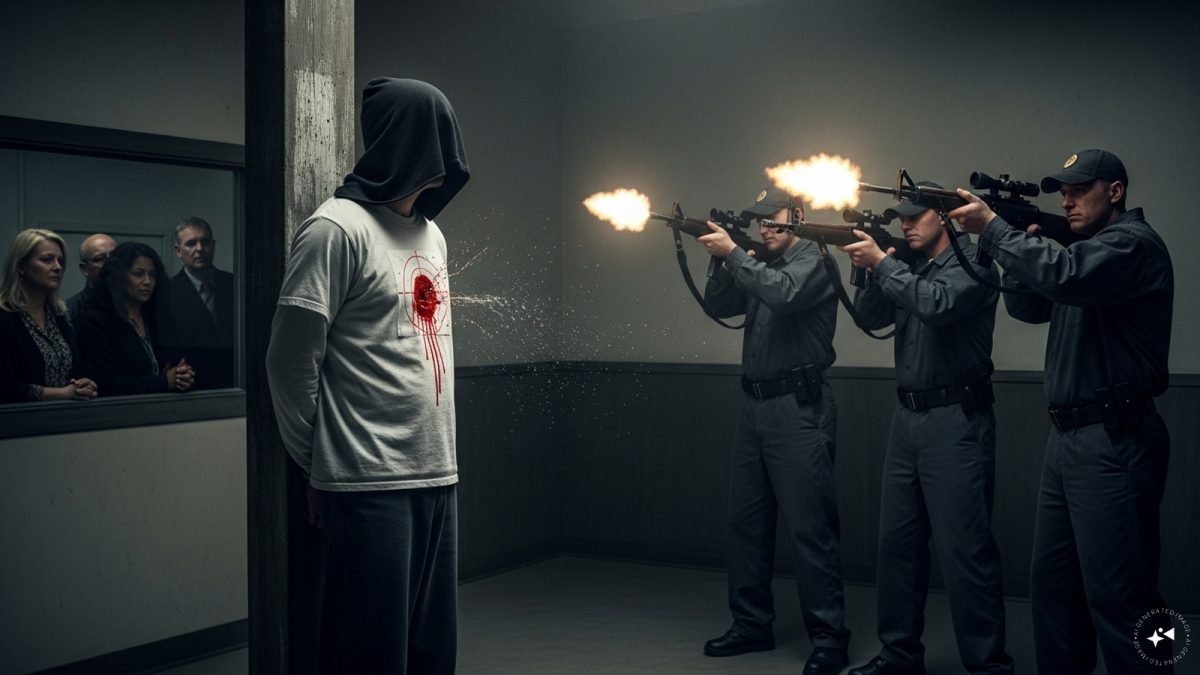South Carolina executed a death-row inmate by firing squad on Friday, marking the state’s third use of the method this year despite intensifying criticism.
Stephen Bryant, 44, was sentenced to death for the 2004 killing of Willard “TJ” Tietjen and had pleaded guilty to two additional murders.
His lawyers argued that the sentencing judge never had the chance to consider evidence of brain damage linked to his mother’s alcohol and drug use during pregnancy, but the state supreme court declined to halt the execution earlier this week.
Final moments in the chamber
According to the Associated Press, Bryant made no final statement and briefly looked toward the 10 witnesses before officials placed a hood over his head. Three prison employees—each armed with live ammunition—stood ready. About 55 seconds after preparations, shots were fired.
Bryant made no sound. A red target placed over his heart flew forward, and he took a few shallow breaths before a final spasm. A doctor pronounced him dead at 6:05 pm. A witness noted a pool of wetness forming on his chest where the bullets struck. Three relatives of victims, present as witnesses, held hands during the execution.
A rapid return to executions
South Carolina resumed executions last year after a 13-year pause caused by an inability to acquire lethal injection drugs. Since then, the state has carried out seven executions in 14 months. It conducted its first modern firing squad execution in March—a method human rights groups call “barbaric”—and one not used elsewhere in the US for 15 years.
The state’s Republican governor, Henry McMaster, denied clemency for Bryant. No South Carolina governor has granted clemency since the death penalty resumed in the US in 1976.
Bryant’s background and final meal
For his final meal, Bryant requested spicy mixed seafood stir-fry, fried fish over rice, egg rolls, stuffed shrimp, two candy bars, and German chocolate cake.
Bo King, a lawyer who works on death penalty cases, said Bryant suffered from a genetic disorder, severe childhood abuse, and permanent brain damage caused by his mother’s binge drinking.
“Mr. Bryant’s impairments left him unable to endure the tormenting memories of his childhood,” King wrote, adding that Bryant “showed grace and courage in forgiving his family” and maintained deep friendships and a love for nature.
Firing squad amid shortages of lethal injection drugs
The firing squad has been used historically to punish mutiny, desertion, and political opposition across various countries. In the US, Zits revival comes as states confront repeated failures and drug shortages associated with lethal injections.
South Carolina is among several states where multiple execution methods remain legal, including the electric chair. After executions resumed in September 2024, the state has executed four inmates by lethal injection and three by firing squad.
)